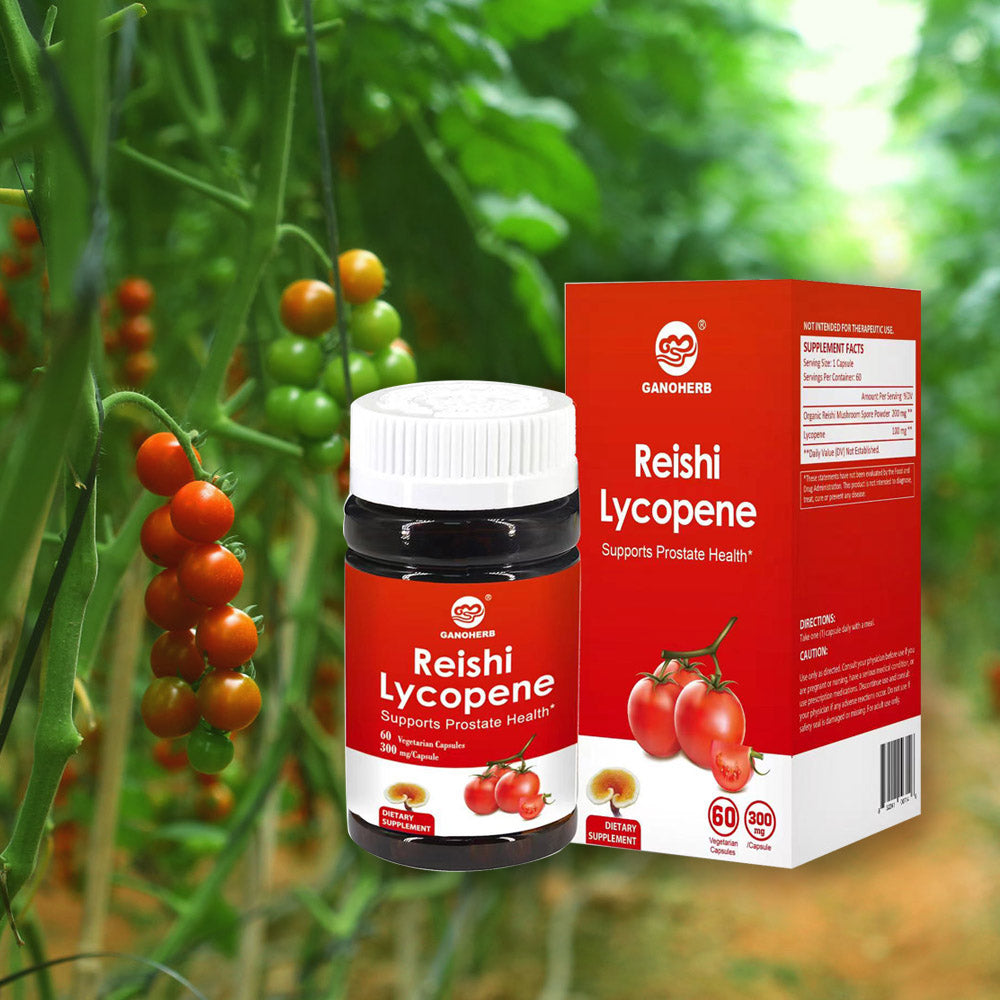Organic Lion's Mane Extract Capsules: Exploring Nature's Unique Fungal Offering
The world of botanicals offers a vast array of intriguing specimens, and among them, the Lion's Mane mushroom (Hericium erinaceus) stands out with its distinctive, cascading appearance. Increasingly, this fascinating fungus is encountered by modern consumers in a concentrated, convenient form: organic lion's mane extract capsules. But what exactly goes into these capsules, and what makes the organic aspect significant? Let's delve into the multifaceted story behind this unique product, exploring its origins, creation, characteristics, and place in contemporary lifestyles.

Understanding the Source: The Lion's Mane Mushroom
Before exploring the capsules, appreciating the source is essential. Lion's Mane is a saprotrophic mushroom, meaning it derives nutrients by decomposing wood, typically found on hardwood trees like oak or beech in temperate forests across North America, Europe, and Asia. Its most striking feature is its appearance: instead of the typical cap-and-stem structure, it forms long, dangling, icicle-like spines, resembling a white lion's mane (hence its name) or even a pom-pom. This unique structure is not just visually captivating but is the fruiting body where the mushroom reproduces.
Wild Lion's Mane can be foraged, but availability and consistency are challenges. This is where cultivation becomes crucial for producing organic lion's mane extract capsules at scale. Growers replicate the mushroom's natural preferences using sterilized organic substrates like hardwood sawdust or supplemented logs within controlled environments. Opting for organic certification ensures this cultivation process strictly avoids synthetic pesticides, herbicides, and fertilizers, relying instead on natural methods to manage the growing environment and produce a pure starting material. This commitment to organic practices extends throughout the supply chain, aiming for a final product free from unwanted synthetic chemical residues.
The Journey from Mushroom to Concentrated Extract
Simply drying and powdering Lion's Mane mushrooms yields a product, but most high-quality organic lion's mane extract capsules contain something more potent: a concentrated extract. Why extraction? The beneficial compounds within the mushroom, including specific polysaccharides and other constituents, are often bound within the tough fungal cell walls, primarily composed of chitin (similar to shellfish shells). Our digestive systems aren't particularly efficient at breaking down chitin to access these compounds effectively.
Extraction techniques overcome this barrier:
Hot Water Extraction: Mimicking traditional preparation methods like making tea or soup, this method uses hot water to dissolve water-soluble compounds. It's particularly effective for certain polysaccharides. The resulting liquid is then concentrated and dried into a powder.
Dual Extraction: Recognizing that some desirable compounds are water-soluble while others are alcohol-soluble, dual extraction employs both methods sequentially. The mushroom material is typically first subjected to an alcohol soak (using food-grade ethanol), then to hot water extraction. The two resulting liquids are combined, concentrated, and dried. This method aims to capture a broader spectrum of the mushroom's naturally occurring constituents.
Concentration and Standardization: The extract liquid, whether from single or dual methods, is concentrated under vacuum and low heat to preserve delicate compounds. It's then spray-dried into a fine powder. Reputable manufacturers often standardize their organic lion's mane extract capsules to contain a guaranteed minimum percentage of specific marker compounds, such as polysaccharides or hericenones/erinacines. This ensures consistency from batch to batch.
The resulting extract powder is significantly more concentrated than simple mushroom powder. It often takes many kilograms of fresh, organic Lion's Mane mushrooms to produce a single kilogram of potent extract. This concentrated powder is then meticulously encapsulated.
The Significance of the Organic Certification
The organic label on organic lion's mane extract capsules is far more than a marketing term; it represents a rigorous set of agricultural and processing standards:
Cultivation Without Synthetics: As mentioned, the mushrooms are grown without synthetic pesticides, herbicides, or fungicides. Natural pest management and soil health practices are employed.
Non-GMO: Organic certification prohibits the use of genetically modified organisms.
Clean Substrates: The materials the mushrooms grow on (substrates like sawdust or grain) must also be certified organic.
Processing Purity: The extraction and encapsulation processes must adhere to organic handling standards. This restricts the use of synthetic solvents (except where required and approved, like specific food-grade alcohols in dual extraction that must be fully removed), artificial preservatives, fillers, or flow agents in the final capsules. Only approved natural alternatives can be used.
Third-Party Verification: Reputable organic certifications (like USDA Organic, EU Organic, or Canada Organic) require strict documentation and regular on-site inspections by accredited third-party agencies to verify compliance at every step – from the farm to the capsule filling facility.
Choosing organic lion's mane extract capsules provides assurance about the purity and natural origins of the product, minimizing potential exposure to agricultural and processing chemicals common in conventional farming.

Sensory Profile and Physical Characteristics
While organic lion's mane extract capsules are valued primarily for their internal composition, understanding their sensory aspects is part of appreciating the product:
Appearance: The capsules themselves are typically standard two-piece vegetarian (often cellulose) or gelatin capsules, containing a fine powder. The powder color can range from light tan to a deeper reddish-brown, depending on the extraction method (dual extracts tend to be darker due to alcohol-soluble compounds) and the specific part of the mushroom used (fruiting body vs. mycelium).
Aroma: Opening a bottle of organic lion's mane extract capsules often reveals a distinct, earthy, and somewhat seafood-like aroma. This characteristic scent, reminiscent of lobster or crab, is due to naturally occurring compounds and is considered a hallmark of genuine Lion's Mane, especially prominent in dual extracts. Some might find it strong, while others associate it with the mushroom's authenticity.
Taste: While consumed in capsule form bypasses direct tasting, the extract powder itself has a strong, earthy, umami flavor profile, often described as savory or seafood-like, with potential bitter notes depending on concentration and extraction. The encapsulation effectively masks this potent taste, making consumption palatable and convenient.
Integration and Usage Considerations
The convenience of organic lion's mane extract capsules is a major factor in their popularity. They offer a simple, tasteless, and portable way to incorporate Lion's Mane into a daily routine. Consistency is key with botanicals, and capsules make it easy to maintain a regular intake.
Dosage: Manufacturers provide suggested serving sizes on the product label, typically ranging from 500mg to 1000mg of extract per capsule, with recommendations of 1-3 capsules daily. The concentration (e.g., 1:1 extract meaning 1g mushroom yields 1g extract, or more commonly 8:1 meaning 8g mushroom yields 1g extract) and standardization levels significantly influence potency. It is always advisable to follow the specific instructions on the product label.
Timing: Some users prefer taking organic lion's mane extract capsules in the morning or early afternoon as part of their daily regimen. Others find no specific time dependency. Personal preference and routine are the guiding factors.
Synergy: Lion's Mane is sometimes found in combination formulas within capsules, paired with other compatible botanicals. However, single-ingredient organic lion's mane extract capsules allow users to experience the unique profile of this mushroom specifically.
Quality Indicators: Beyond organic certification, look for transparency: the Latin name (Hericium erinaceus), the part used (fruiting body is most common for extracts), the extraction type and ratio (e.g., Dual Extract 8:1), standardization details (e.g., Min. 30% Polysaccharides), and third-party testing for purity (heavy metals, microbes) and potency.
Cultural Presence and Modern Interest
Lion's Mane has a notable presence in traditional culinary and cultural practices, particularly in East Asia. In countries like China, Japan, and Korea, it has been appreciated for centuries, not only for its unique texture and flavor (often compared to seafood like crab or lobster when cooked) but also as part of a historical appreciation for various fungi. It features in soups, stir-fries, teas, and even as a meat substitute due to its texture.
The modern fascination with functional foods and natural products has propelled Lion's Mane into the global spotlight. This interest aligns with a broader cultural movement towards exploring traditional ingredients through a contemporary lens, seeking to understand their composition and potential roles within modern lifestyles. The development of concentrated extracts encapsulated for convenience represents a fusion of ancient appreciation and modern technology. Organic lion's mane extract capsules symbolize this bridge – offering a traditional botanical in a form suited to 21st-century habits and values, particularly the growing demand for organic, transparently sourced products.
Organic lion's mane extract capsules represent the culmination of a fascinating journey: from a wild, uniquely formed forest mushroom to a carefully cultivated organic agricultural product, transformed through precise extraction science into a concentrated powder, and finally encapsulated for ease of use. The commitment to organic certification ensures purity from cultivation through processing. Understanding the extraction methods highlights why extracts offer a different profile than simple powders. Recognizing the distinct sensory characteristics connects us to the mushroom's inherent properties. The capsule format delivers unparalleled convenience for consistent daily incorporation. Finally, appreciating its historical culinary and cultural context grounds this modern product in a rich tradition.
Choosing high-quality organic lion's mane extract capsules involves looking for transparency, reputable organic certifications, clear information on extraction and standardization, and independent testing. As with any natural product, consistency and quality are paramount for those seeking to integrate this unique fungal offering into their exploration of the botanical world. It stands as a testament to human ingenuity in harnessing and concentrating the inherent qualities found within nature's diverse creations.











